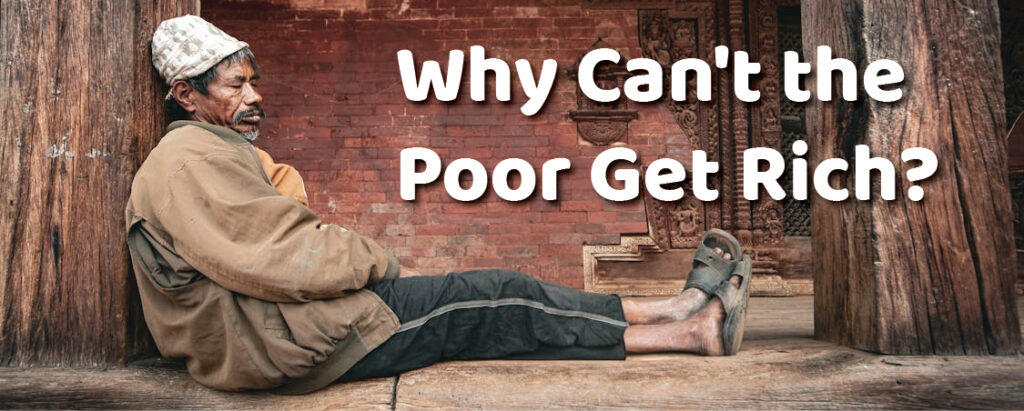
Unraveling the Paradox of Poverty
In a world marked by staggering inequalities, the question looms large: “Why can’t the poor get rich?” This conundrum perplexes economists, policymakers, and ordinary citizens alike. Despite the existence of opportunities and resources, poverty persists stubbornly. In this article, we delve into the complexities of poverty, examining the systemic barriers that impede socioeconomic mobility and exploring potential solutions.
Poverty is a multifaceted issue that transcends mere economic deprivation. It encompasses a lack of access to education, healthcare, and opportunities for upward mobility. The entrenched nature of poverty often traps individuals in a cycle of deprivation, making it difficult to break free from its grasp. As we unravel the paradox of poverty, it becomes evident that addressing its root causes requires a multifaceted approach.
One of the key barriers to poverty alleviation is the lack of access to quality education. Education is often touted as the great equalizer, providing individuals with the skills and knowledge necessary to succeed in the modern economy. However, many impoverished communities lack adequate educational resources, including schools, teachers, and learning materials. As a result, children from disadvantaged backgrounds are denied the opportunity to fulfill their potential, perpetuating the cycle of poverty across generations.
Furthermore, the poor often face limited access to healthcare, exacerbating their economic woes. Without adequate healthcare, individuals are more susceptible to illness and injury, which can result in lost income and increased medical expenses. The burden of healthcare costs can push families further into poverty, trapping them in a vicious cycle of debt and destitution.
In addition to education and healthcare, the poor also encounter barriers to economic opportunity. Discrimination, lack of access to credit, and limited job prospects all contribute to their economic marginalization. Despite their best efforts, many find themselves relegated to low-paying jobs with little opportunity for advancement. This lack of upward mobility further entrenches poverty, leaving individuals and families struggling to make ends meet.
Moreover, the poor often lack the social capital necessary to navigate complex bureaucratic systems and access support networks. Without a strong social support system, individuals are left to fend for themselves, facing insurmountable odds in their quest for economic stability. This isolation exacerbates their sense of powerlessness and perpetuates the cycle of poverty.
However, it is essential to recognize that poverty is not solely a result of individual failings. It is also a consequence of systemic inequalities and structural injustices that perpetuate socioeconomic disparities. Addressing poverty requires a holistic approach that tackles its root causes while also providing immediate relief to those in need.
Investing in education, healthcare, and economic opportunity is paramount to breaking the cycle of poverty. By providing individuals with the tools and resources they need to succeed, we can empower them to lift themselves out of poverty and build a better future for themselves and their families. Additionally, addressing systemic inequalities and dismantling barriers to social mobility is crucial to creating a more equitable society.
In conclusion, the question of why the poor can’t get rich is a complex one with no easy answers. Poverty is a multifaceted issue rooted in systemic inequalities and structural injustices. By addressing its root causes and investing in education, healthcare, and economic opportunity, we can create a more just and equitable society where everyone has the chance to thrive. It is time to confront the paradox of poverty head-on and work towards a future where no one is left behind.


